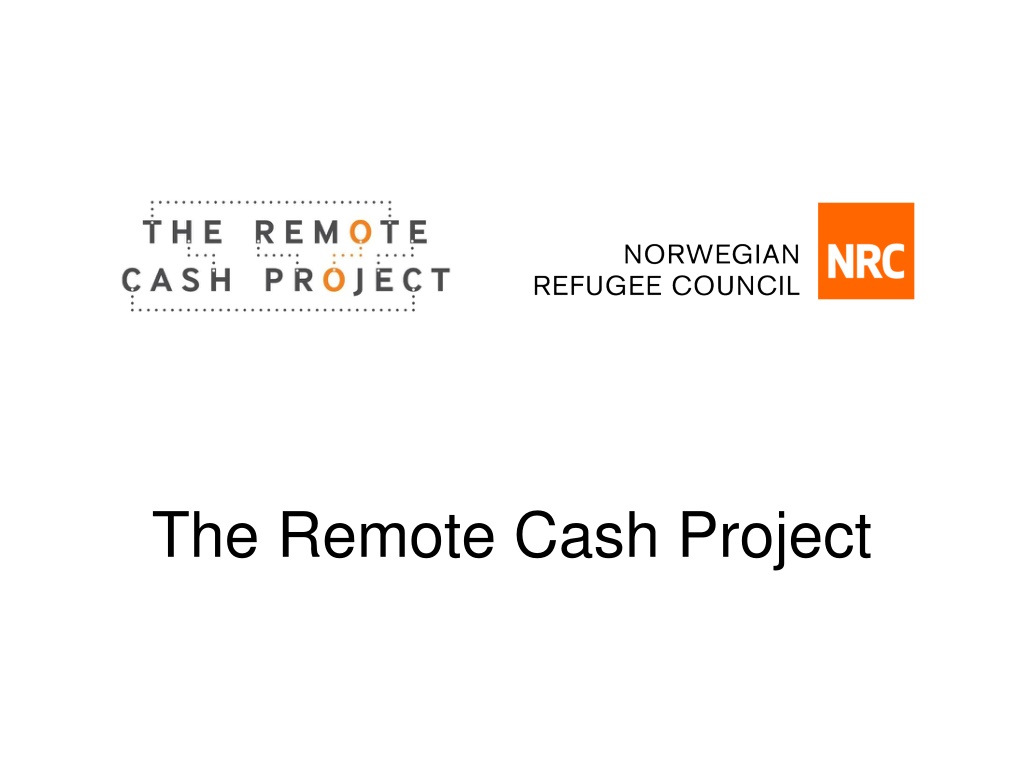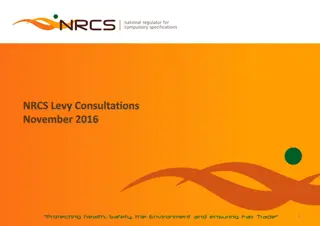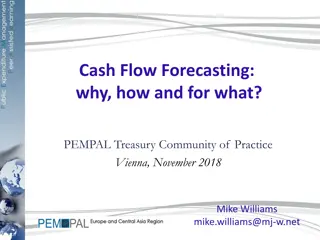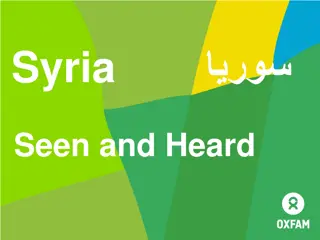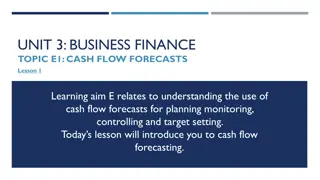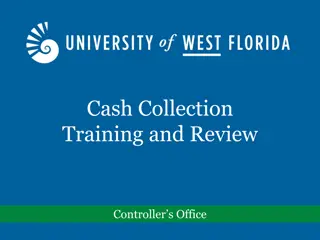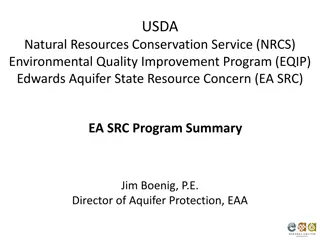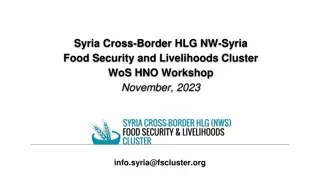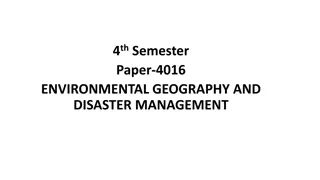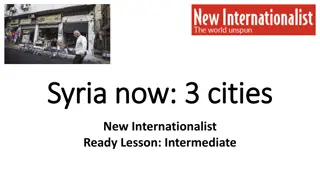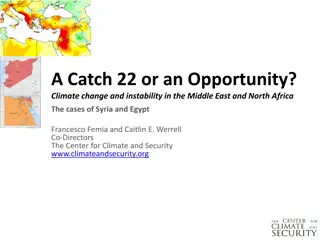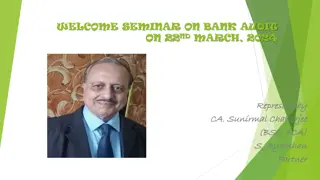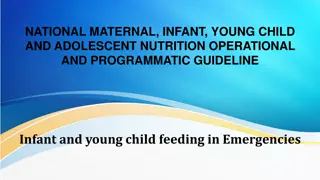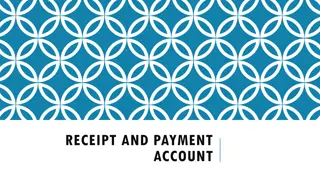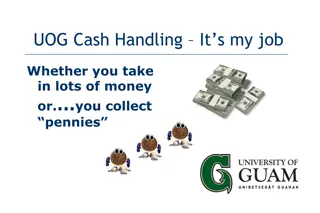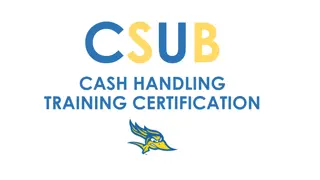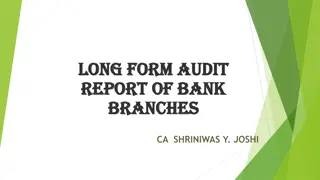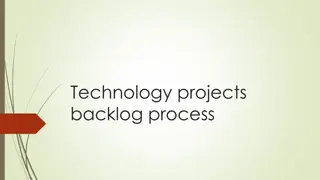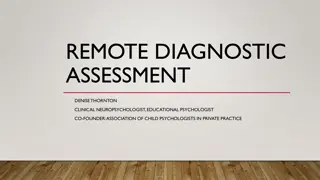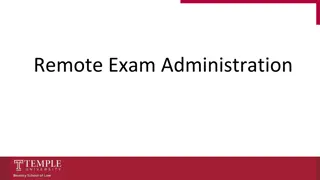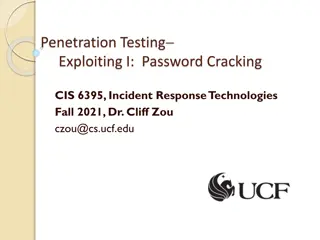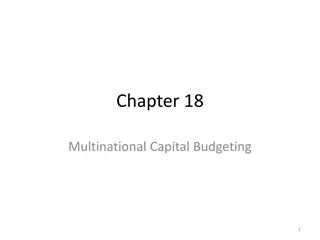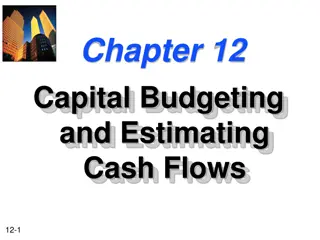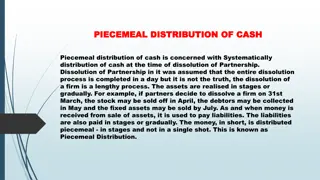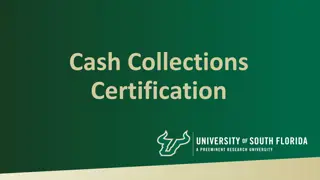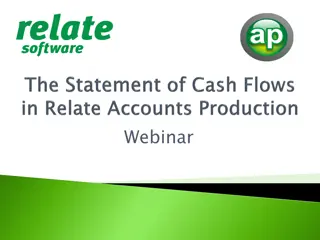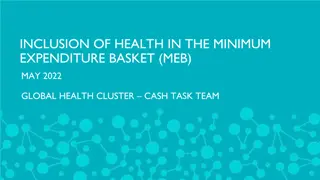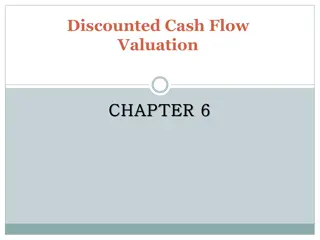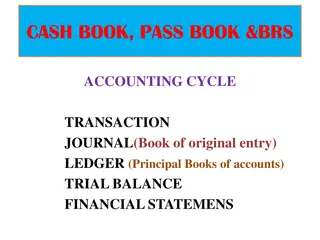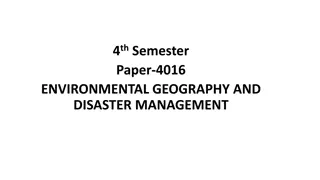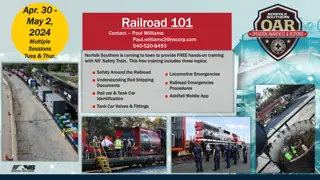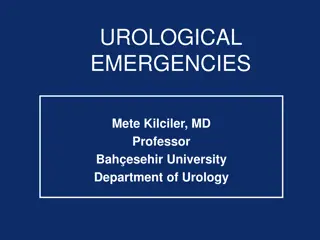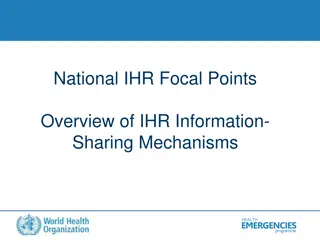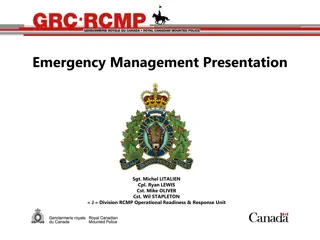Supporting Remote Cash Projects in Emergencies - Insights from NRC's Operations in Syria
NRC's initiatives include the Remote Cash Project, writing a handbook for cash programming in remote emergencies, and conducting surveys to map remittance flows in Syria. Methods used were diverse, including surveys, focus groups, and online surveys. Key constraints included limited data access, trust issues, and sensitivities around cash flow. The project aimed to support fast decision-making in emergency situations.
Download Presentation

Please find below an Image/Link to download the presentation.
The content on the website is provided AS IS for your information and personal use only. It may not be sold, licensed, or shared on other websites without obtaining consent from the author. Download presentation by click this link. If you encounter any issues during the download, it is possible that the publisher has removed the file from their server.
E N D
Presentation Transcript
What is it? An ECHO-funded project at NRC Writing a handbook for cash programming in remote emergencies Making training materials tailored to remote partnerships Developing a cash expert roster for use by other agencies For more on the project, contact roger.dean@nrc.no
The paper Supporting operations in Syria, NRC surveyed for and wrote Remittances to Syria: What Works, Where and How bit.ly/1onsTGR Objectives were to map and characterise remittance flows, and implicitly to support development of cash transfer programming How could we send money? It need only be good enough to support fast emergency decision-making. Not academic rigour.
Very mixed methods We knew access to data would be very difficult, so we tried almost everything, hoped to triangulate findings Secondary source review Surveys and focus groups with refugees in Jordan KIIs with hawala agents in Jordan Surveys in parts of southern Syria Online survey for remittance receivers in Syria and senders worldwide
Key constraints and learning Surveys and focus groups with refugees in Jordan Refugees are a great source of info on life at home, under-used Had to be quick and discrete due to authorities sensitivities on cash flow issues Existing access and trust (through ongoing projects) essential
Key constraints and learning Surveys in parts of southern Syria Only snowball sampling was realistic Local NGO partners got much support from NRC How to fill the forms How to approach people appropriately but needed more from us How to weigh NRC s needs against their safety constraints Data was very messy, but usable
Key constraints and learning Surveymonkey for receivers in Syria and senders worldwide. Promoted on social media, email lists, diaspora groups etc Insufficient data collected, due to NRC s very limited network in Syria Little onward sharing Lack of trust
Key findings We did get good enough data to support project design - Hawala is the most viable option for CTP to Syria It s used and trusted across government and opposition areas (lack of data from ISIS areas) Delivery of cash must be very local to beneficiaries NGOs need to work on enhanced due diligence processes
